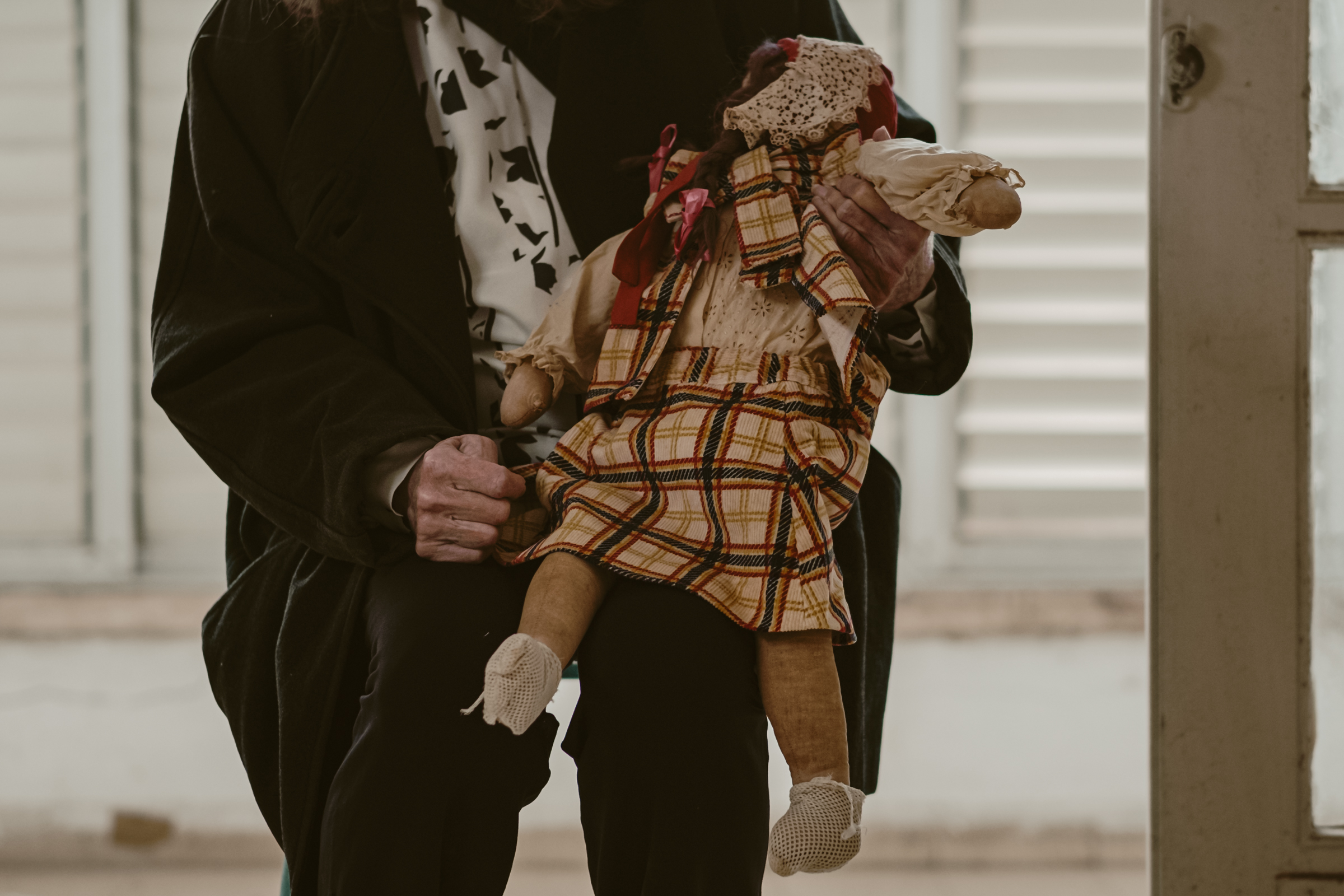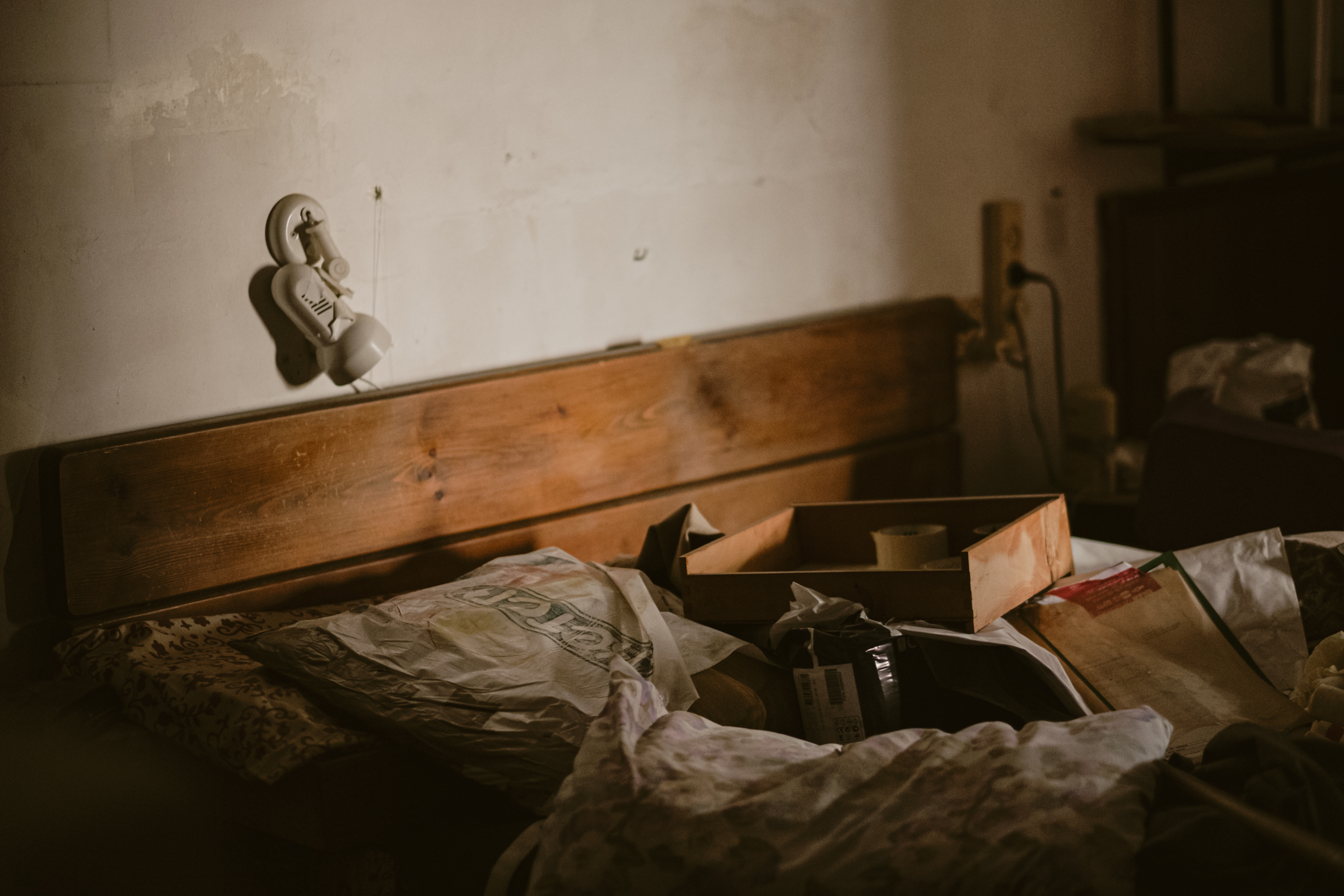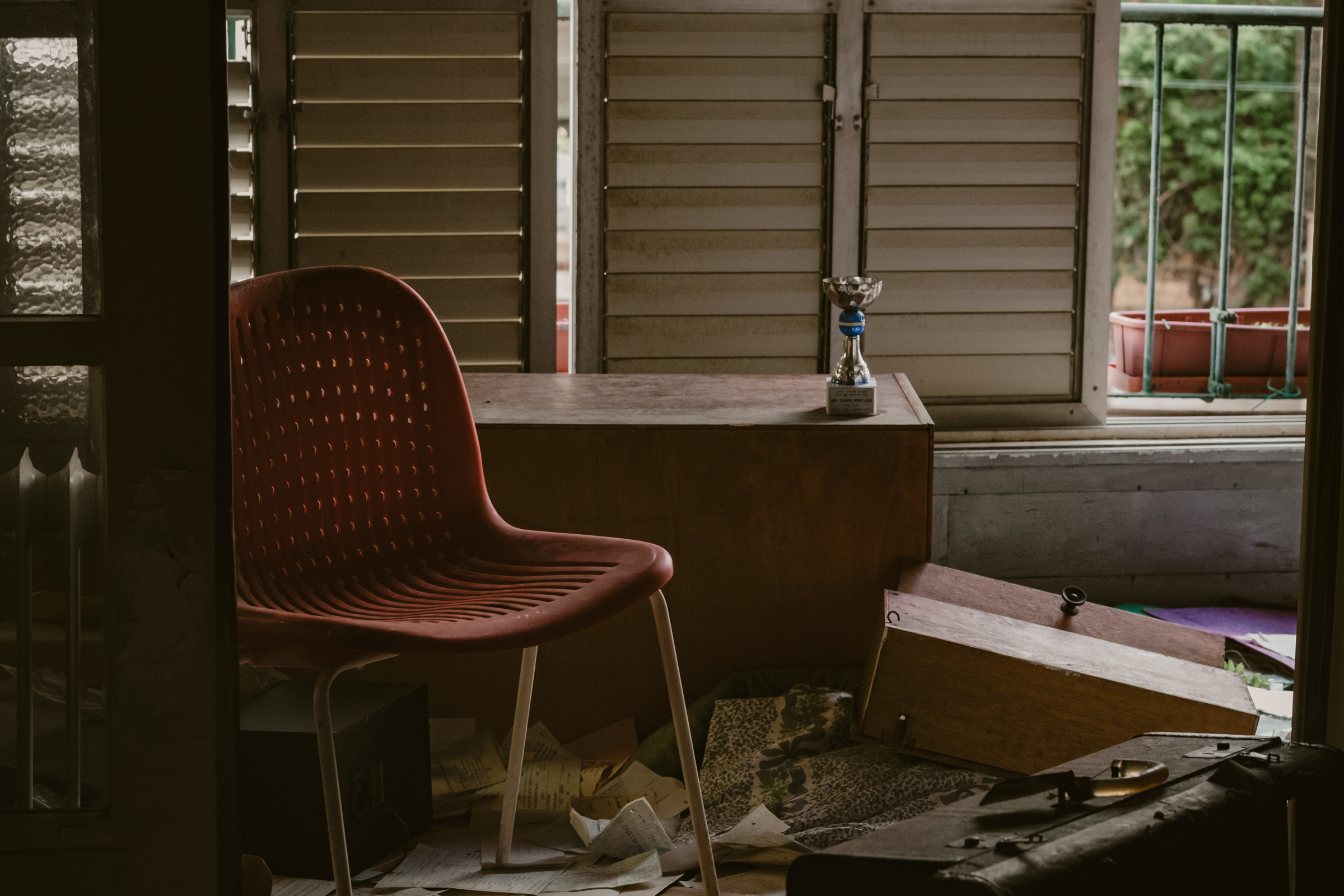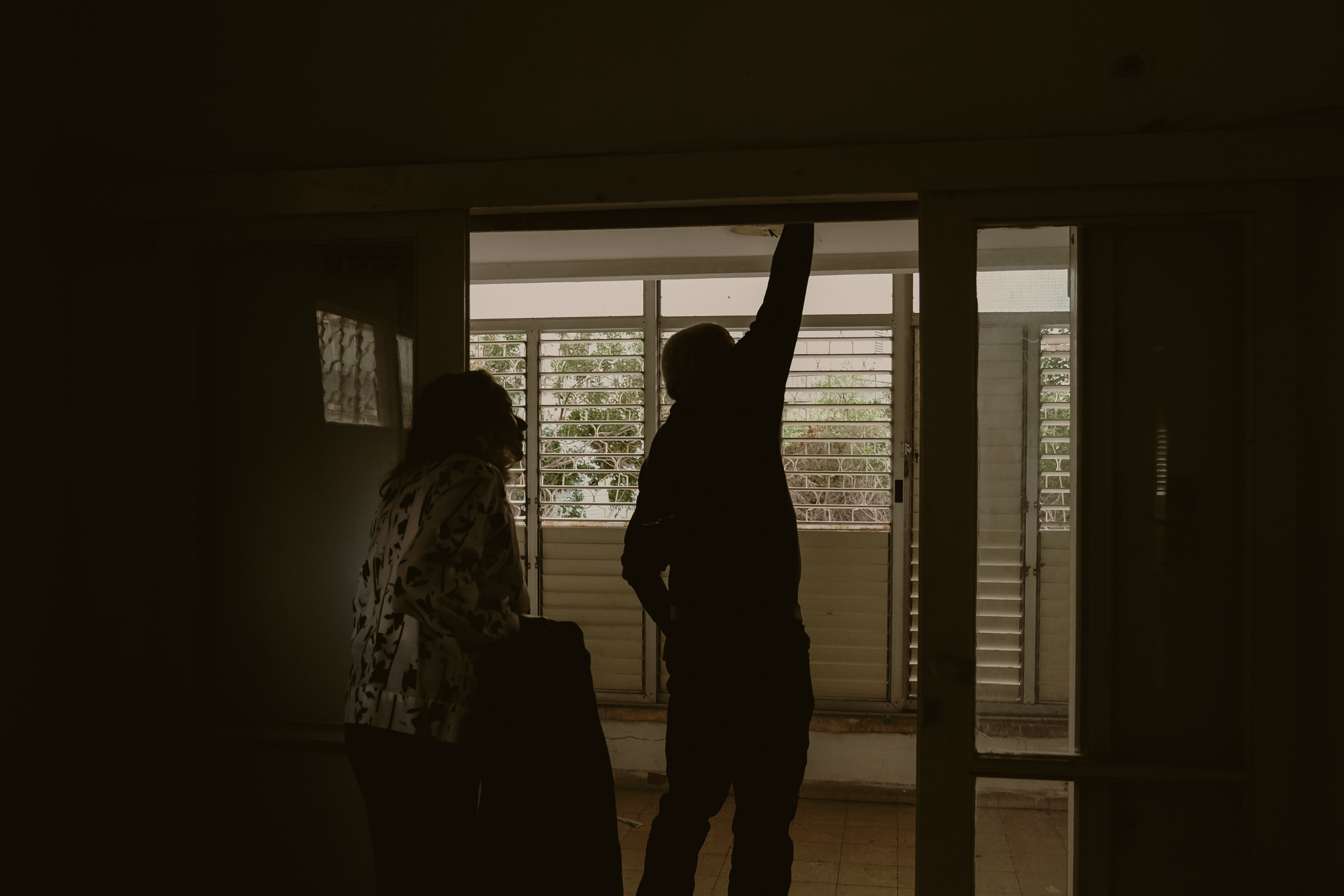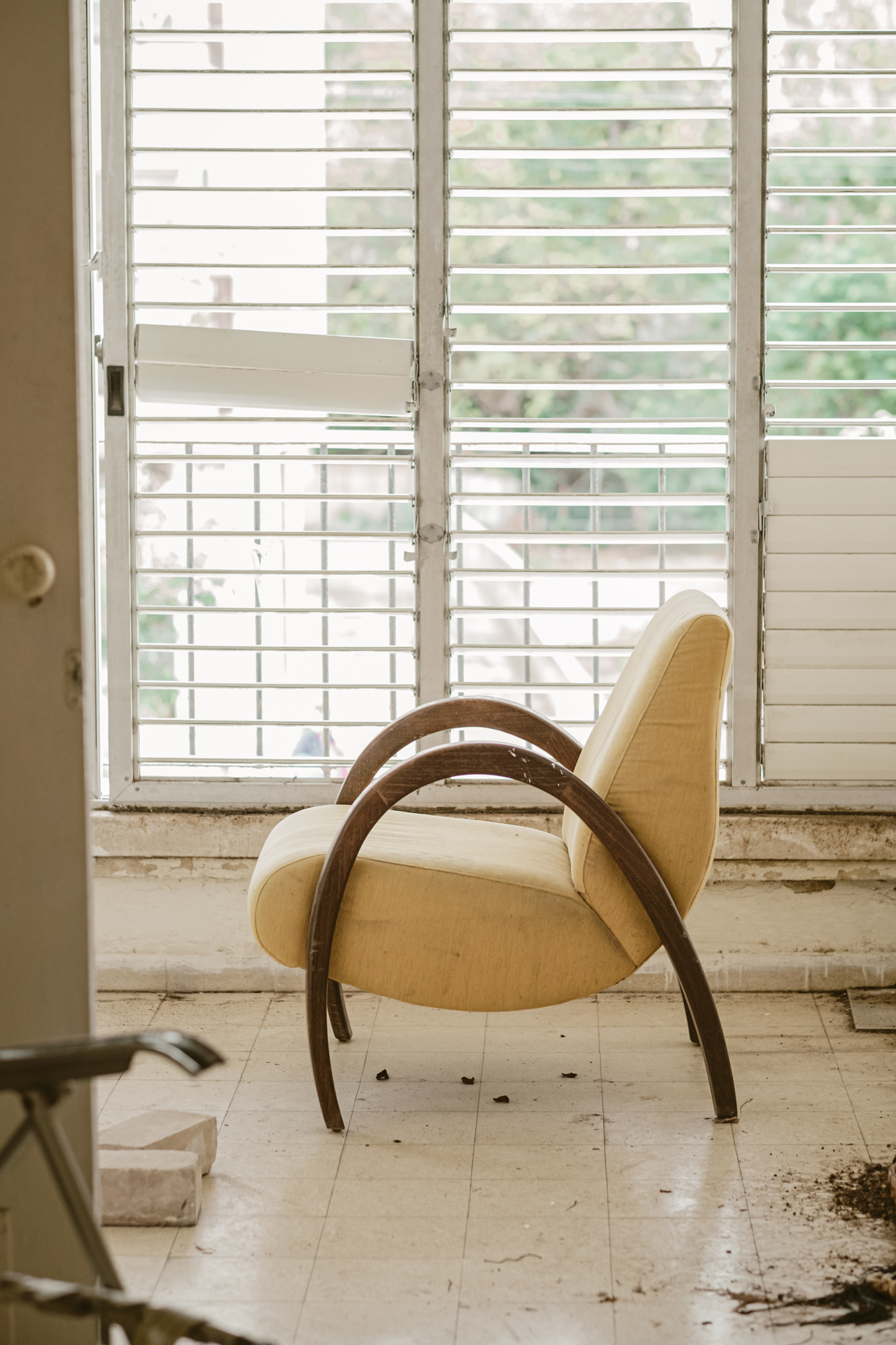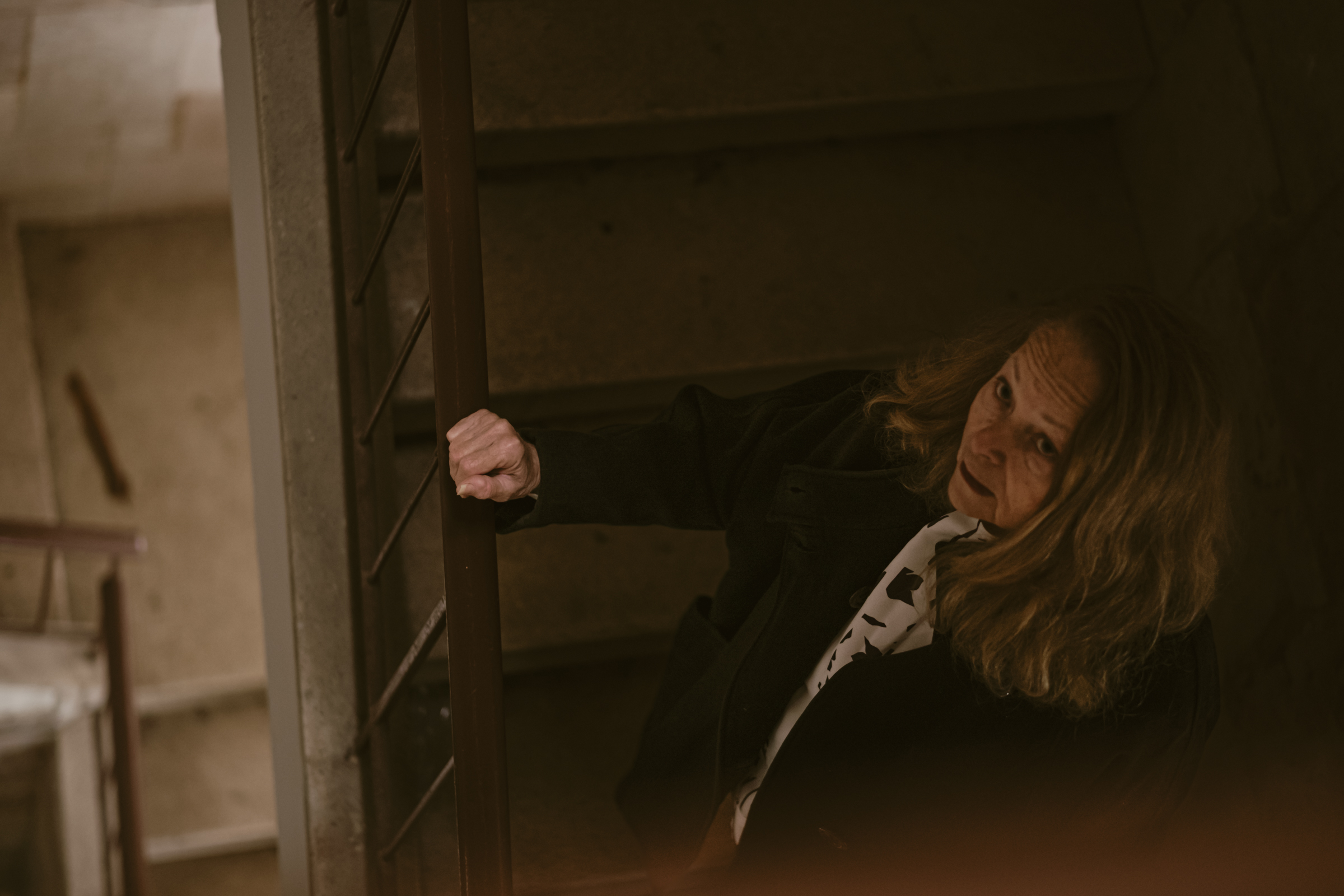2021
A renovation wave is sweeping the city of Tel Aviv.
Slowly we are turning from a city of apartment buildings to a city of boutique buildings. Embossed floors with stains are replaced by parquet, polished stairs give way to sophisticated elevators and wooden wall cabinets change their shape into sliding wardrobes. "Urban renewal" they call it, for me it's a parting from one of my childhood anchors.
The house in De Haas was the childhood home of my father, Dov, and his sister Nira. They grew up there together with the young Tel Aviv of the fifties. My three brothers and I would go there every week as children to visit Grandpa Shmulik and Grandma Aviva. Grandpa passed away when I was 4, I remember the beige armchair he used to sit on, and also the texture. Grandma Aviva lived another decade after his death. Engraved in my memory of the moment when she would open the white door with a decorated galabiya and a big smile. She would always make us cold apple cider from the freezer, and to this day I keep cider in the freezer and go back in my memory to the little kitchen in the back of the apartment.
I have not visited this house for 15 years. The day before the demolition of the building, early in the morning I came to say goodbye to the house with Dad and Nira. They may be 70-plus years old, but between the walls of this house they were little kids again, and every nook, cranny an
d wall brought back countless memories. There are moments that arise only when you smell, touch and breathe places with excessive meaning, and so it was. I wanted to soak up with them these eternal moments from the past, and perhaps, succeed in capturing their feelings on my camera. Nira explained to me about the crack in the living room door. How Grandma would always ask the glazier to fix it, and each time the glazier said the crack was irreparable. And to this day the crack has not been repaired. It made me think that maybe our souls also has irreparable cracks that make us special and memorable stories.
I asked my father and aunt to each bring an object from their childhood. Dad brought a hand crafted soccer game he built himself from planks he found on the street, and Nira brought a cloth doll that Grandma brought her as a child. From a material culture perspective, these two objects embody the spirit of the period and fashion, the gender representations and available materials of the 1950s.
Dad was curious to see if the cache he used to hide things from Grandma still existed, and at the sight of the surprise the stash remained in place, but it remained empty. I saw Dad and Nira reminisce about the neighbors, about Shlomo Artzi who grew up with them in the neighborhood, about the laundry they would do on the roof in shifts and about the basement that served as a shelter during the war. The new boutique building for each apartment will already have a storage room and a tumble dryer and will not have to stand in line to hang out or huddle in the basement for protection.
After two days I came to photograph the ruined building.
![]()
![]()
![]()
![]()
![]()
![]()
![]()
![]()
![]()
![]()
![]()
![]()
![]()
![]()
A renovation wave is sweeping the city of Tel Aviv.
Slowly we are turning from a city of apartment buildings to a city of boutique buildings. Embossed floors with stains are replaced by parquet, polished stairs give way to sophisticated elevators and wooden wall cabinets change their shape into sliding wardrobes. "Urban renewal" they call it, for me it's a parting from one of my childhood anchors.
The house in De Haas was the childhood home of my father, Dov, and his sister Nira. They grew up there together with the young Tel Aviv of the fifties. My three brothers and I would go there every week as children to visit Grandpa Shmulik and Grandma Aviva. Grandpa passed away when I was 4, I remember the beige armchair he used to sit on, and also the texture. Grandma Aviva lived another decade after his death. Engraved in my memory of the moment when she would open the white door with a decorated galabiya and a big smile. She would always make us cold apple cider from the freezer, and to this day I keep cider in the freezer and go back in my memory to the little kitchen in the back of the apartment.
I have not visited this house for 15 years. The day before the demolition of the building, early in the morning I came to say goodbye to the house with Dad and Nira. They may be 70-plus years old, but between the walls of this house they were little kids again, and every nook, cranny an
d wall brought back countless memories. There are moments that arise only when you smell, touch and breathe places with excessive meaning, and so it was. I wanted to soak up with them these eternal moments from the past, and perhaps, succeed in capturing their feelings on my camera. Nira explained to me about the crack in the living room door. How Grandma would always ask the glazier to fix it, and each time the glazier said the crack was irreparable. And to this day the crack has not been repaired. It made me think that maybe our souls also has irreparable cracks that make us special and memorable stories.
I asked my father and aunt to each bring an object from their childhood. Dad brought a hand crafted soccer game he built himself from planks he found on the street, and Nira brought a cloth doll that Grandma brought her as a child. From a material culture perspective, these two objects embody the spirit of the period and fashion, the gender representations and available materials of the 1950s.
Dad was curious to see if the cache he used to hide things from Grandma still existed, and at the sight of the surprise the stash remained in place, but it remained empty. I saw Dad and Nira reminisce about the neighbors, about Shlomo Artzi who grew up with them in the neighborhood, about the laundry they would do on the roof in shifts and about the basement that served as a shelter during the war. The new boutique building for each apartment will already have a storage room and a tumble dryer and will not have to stand in line to hang out or huddle in the basement for protection.
After two days I came to photograph the ruined building.





